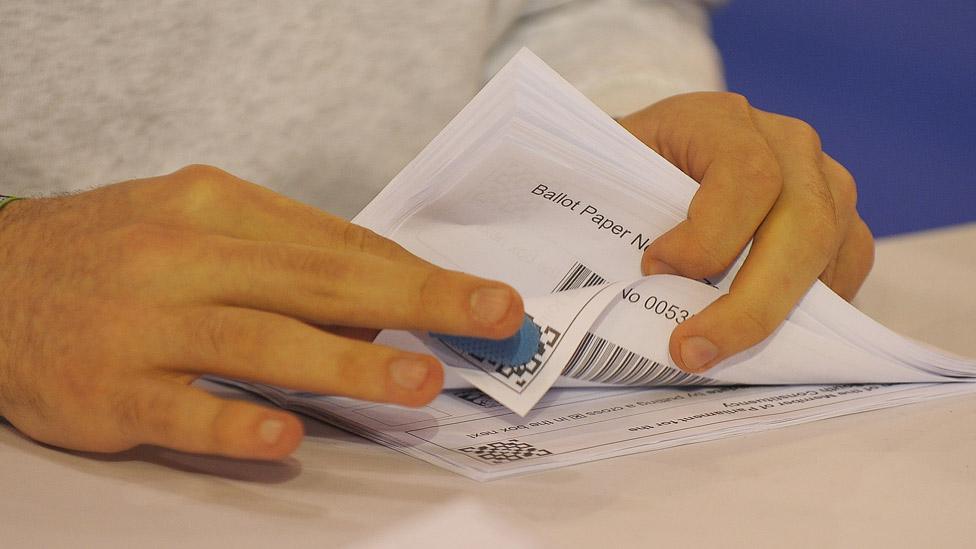Wales' prison inmates could get local election vote by 2022
- Published
Some ex-prisoners say access to information about Welsh politics is lacking
The Welsh Government has announced details of its plan to give some prisoners the vote.
Ministers say inmates serving less than four years should be able to vote in local elections from 2022.
A group of ex-offenders told the BBC's Politics Wales programme that prisoners would vote, but many feel disconnected from politics.
The Welsh Government says it will provide information to prisoners and improve their access to Welsh media.
The plans, outlined in proposed amendments to the Local Government and Elections Bill, would enable certain Welsh prisoners to vote either by proxy or by post.
They would be registered to an address in Wales where they have a connection - such as a family home or previous address - rather than the prison.
Some prisoners can already vote, including those on remand, convicted but not sentenced, in contempt of court, or serving in default of payment for a sum of money.
However, nearly 2,000 prisoners and young people in custody would get the vote in council elections under the new proposals.
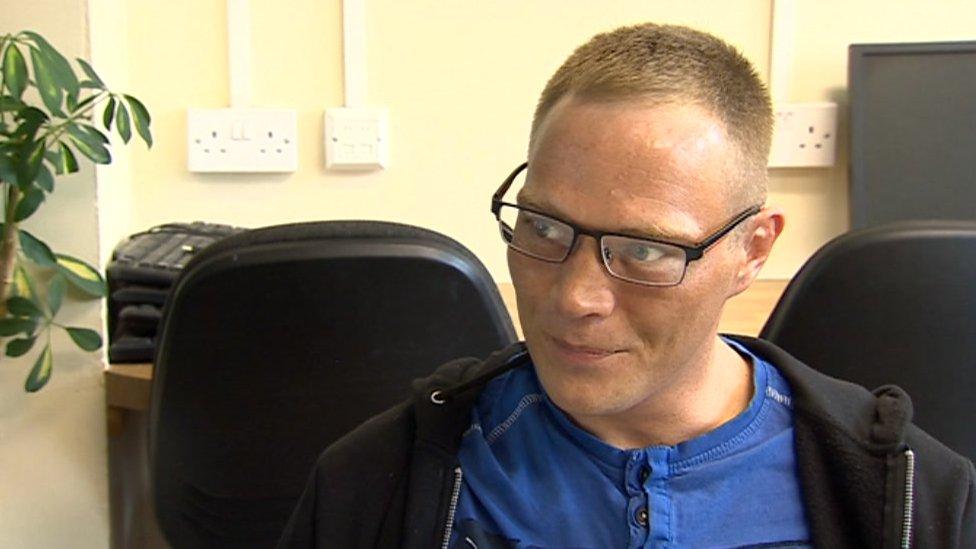
"It could make a big difference" said ex-offender Jared
Former inmates who spoke to BBC Wales raised the issue of accessing Welsh media that would help make informed choices in Wales-only elections.
Ex-prisoner Jared said: "I think everyone's going to jump at the chance to vote who's in prison.
"It's going to make a big bit of difference - but the freedom of information, and the information that people get, is a problem.
"If you give someone the vote, they'll use it… even if you want it or not."
Jared thinks politicians could even canvass votes inside jails, saying: "People can have a voice and explain [to politicians] what people in prisons want. "
Omar, another former inmate, said prison was "a dark, dark place" because of the lack of access to information from the outside world.
He said prisoners aged between 40 and 50 tended to be interested in politics, but those aged between 18 and 25 generally do not care.
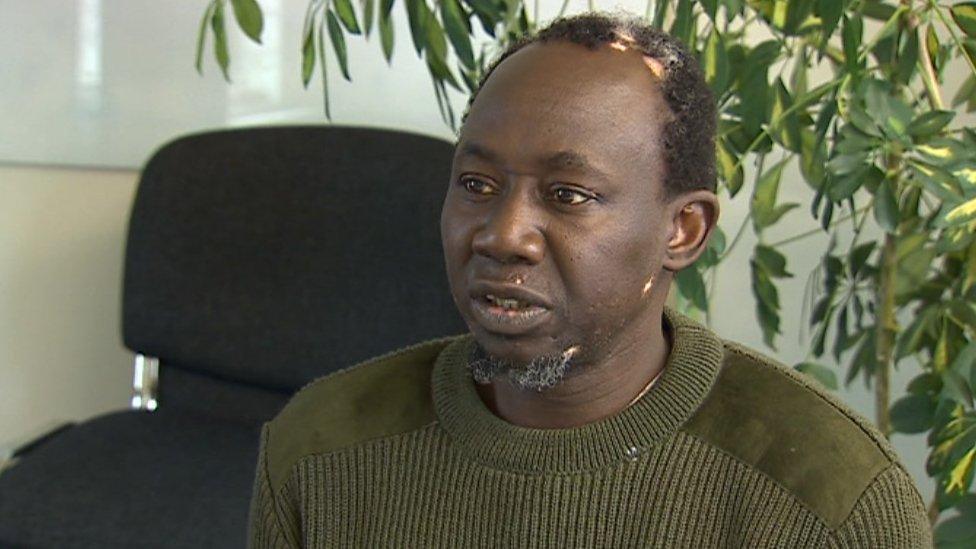
Omar said a lack of information means younger inmates "don't care" about elections
"They say no, why should I vote?" said Omar.
"Because people have been caught out, ignored so much, so they need to be aware."
Prisons in Wales are controlled by the UK government, but the Welsh Government has responsibility over education and healthcare inside Welsh jails.
However, the Prison Reform Trust estimates 37% of Welsh prisoners are held in English prisons.
As there are no women's prisons in Wales, Alice (not her real name) went to jail in England.
"I wasn't connected at all to Wales," she said.
"I was disconnected from politics and the news and everything that was going on in my area, as well as family.
"We could only keep up-to-date with what was going on where we were staying at the time."
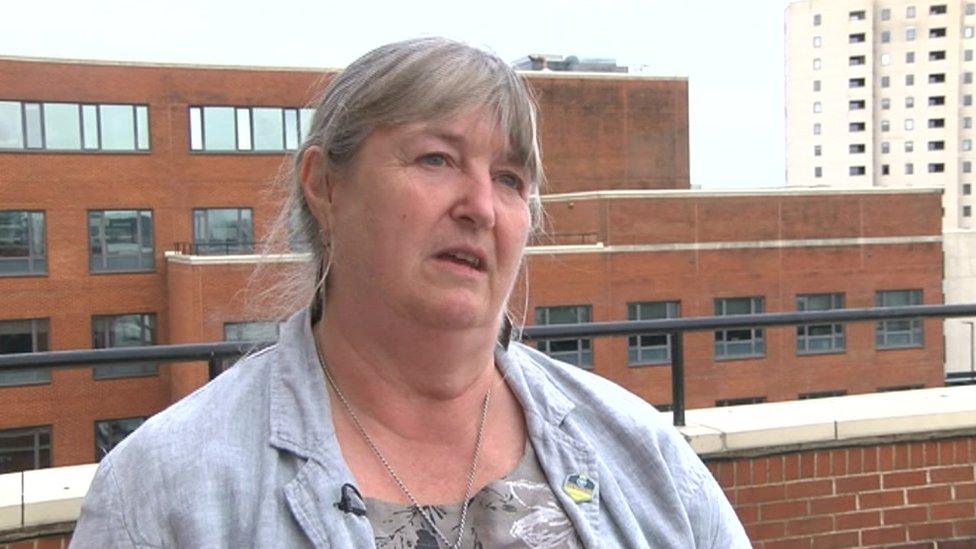
Julie James said candidate information can be sent to prisons
Local Government Minister Julie James said work would be carried out to improve access to information about elections.
"Candidate information can be posted out with ballot papers," she said.
"And when electoral registers send out the information, they can send out candidate statements, so [prisoners] have information about what they are voting on."
Conservative AM Mark Isherwood questioned whether the practicalities and cost have been fully considered by the Labour Welsh Government.
"Would each prisoner have the right to, say, attend a husting?" he asked.
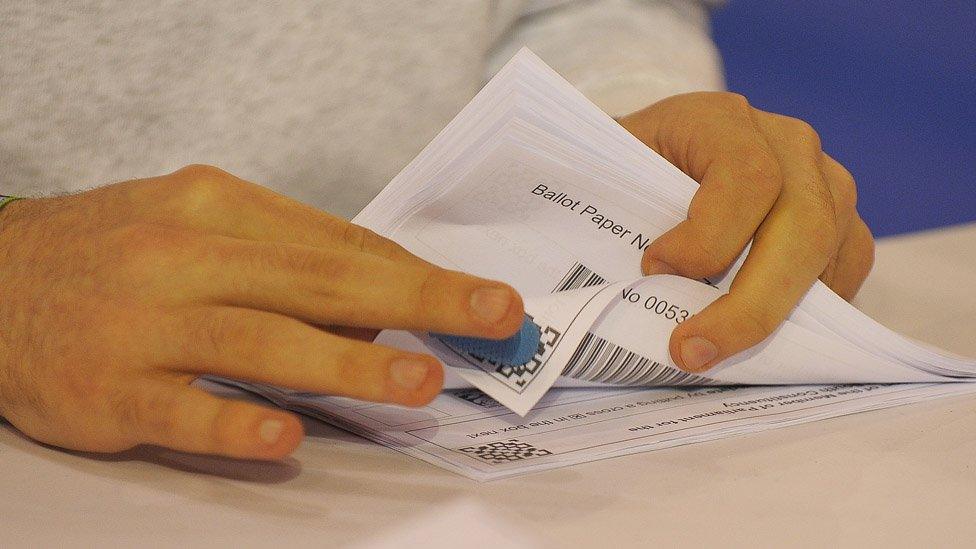
All inmates in Ireland have been able to vote in elections and referenda since 2007
The Welsh Government said registering and administering voters for council elections will cost about £6,600, with additional costs for updating the electoral register and Welsh language information provision.
Scotland has just made it legal for people serving less than a year in jail to vote but there are no plans to do so as yet in the rest of the UK.
Canada and Switzerland are among countries which have extended the vote, while in Ireland, all inmates - regardless of sentence - have been able to vote in elections and referenda since 2007.
Welsh Assembly members are expected to consider changes to local election voter eligibility in the coming weeks.
Ministers are planning separate legislation after the 2021 Welsh election to allow eligible prisoners to vote in future Senedd polls.
- Published17 February 2020

- Published25 September 2019
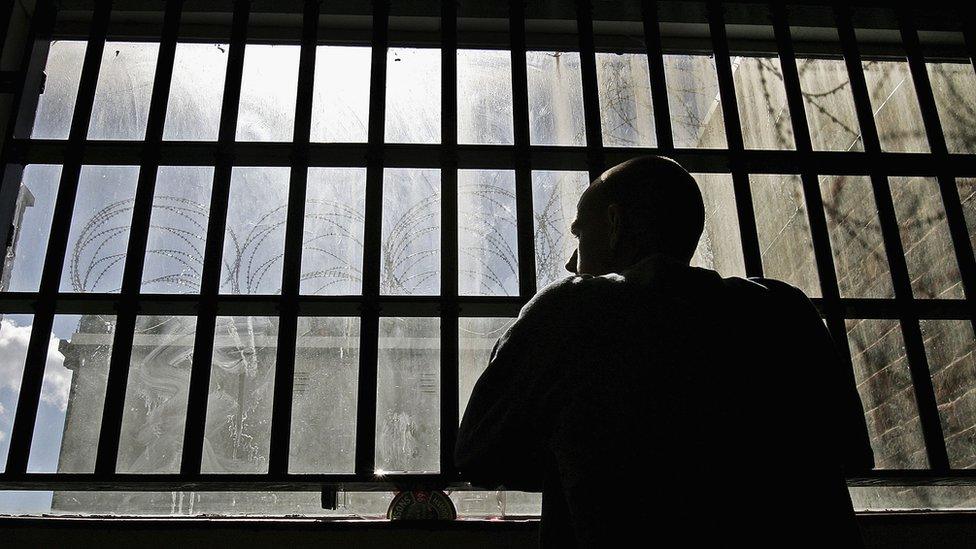
- Published25 September 2019
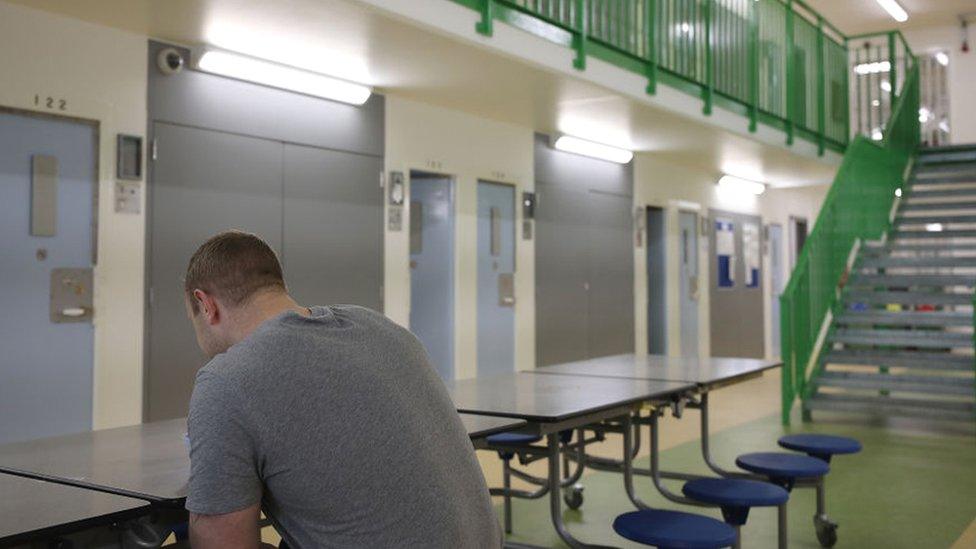
- Published11 June 2019

- Published30 January 2019
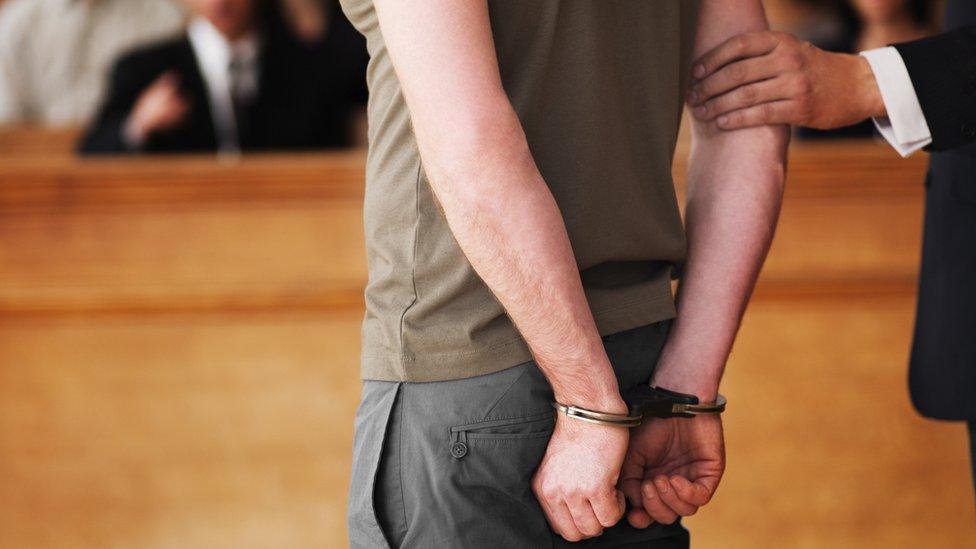
- Published23 January 2019

- Published21 June 2019
